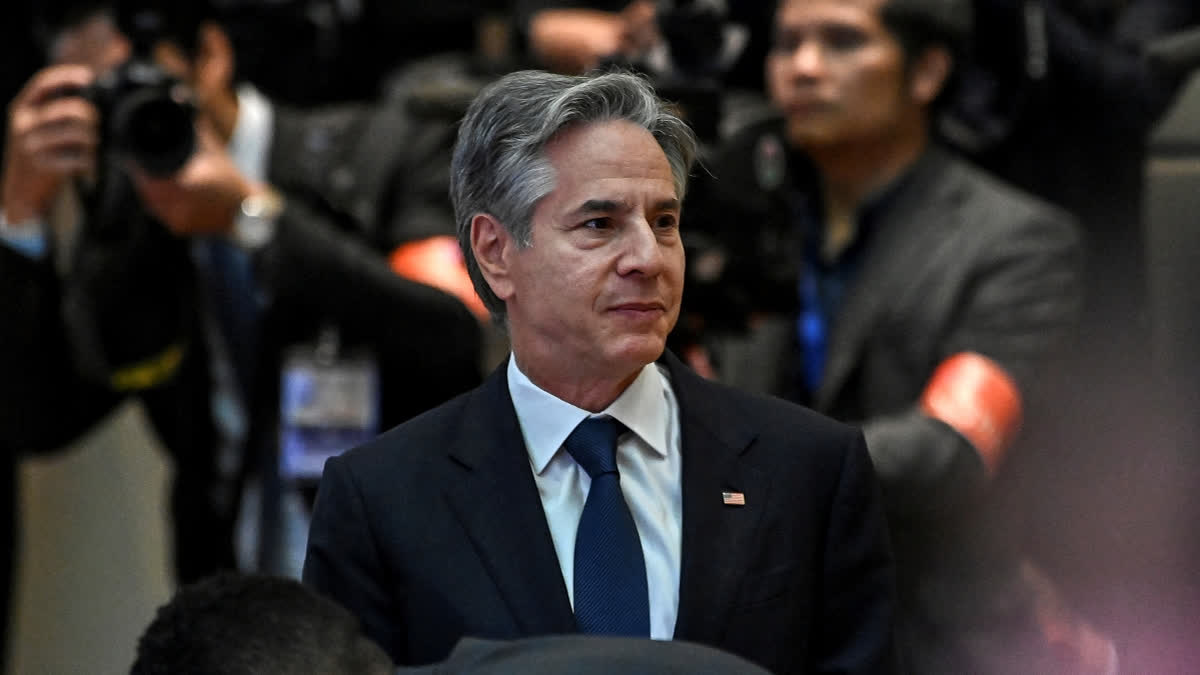Vientiane (Laos): US Secretary of State Antony Blinken told Southeast Asian leaders Friday during an annual summit meeting that the US is concerned about China's increasingly dangerous and unlawful activities in the disputed South China Sea and pledged the US will continue to uphold freedom of navigation in the vital sea trade route.
The 10-member Association of Southeast Asian Nations meeting with Blinken followed a series of violent confrontations at sea between China and ASEAN members Philippines and Vietnam. These have fueled concerns that China's increasingly assertive actions in the waterways could spiral into a full-scale conflict. China claims almost the entire sea and overlaps claims with ASEAN members Vietnam, the Philippines, Malaysia, Brunei, and Taiwan.
About a third of global trade transits through the sea, which is also rich in fishing stocks, gas, and oil. Beijing has refused to recognize a 2016 international arbitration ruling by a U.N.-affiliated court in the Hague that invalidated its expansive claims and has built up and militarized islands it controls. We are very concerned about China's increasingly dangerous and unlawful activities in the South China Sea which have injured people, harmed vessels from ASEAN nations and contradict commitments to peaceful resolutions of disputes, said Blinken, who is filling in for President Joe Biden, in his opening speech at the U.S.-ASEAN summit.
The United States will continue to support freedom of navigation and freedom of overflight in the Indo-Pacific. The U.S. has no claims in the South China Sea but has deployed navy ships and fighter jets to patrol the watery in a challenge to China's claims. Chinese and Philippine vessels have clashed repeatedly this year, and Vietnam said last week that Chinese forces assaulted its fishermen in the disputed sea. China has also sent patrol vessels to areas that Indonesia and Malaysia claim as exclusive economic zones.
The U.S. has warned repeatedly that it's obligated to defend the Philippines its oldest treaty ally in Asia if Filipino forces, ships or aircraft come under armed attack, including in the South China Sea. Philippine President Ferdinand Marcos Jr. complained to summit leaders on Thursday that his country continues to be subject to harassment and intimidation by China.
